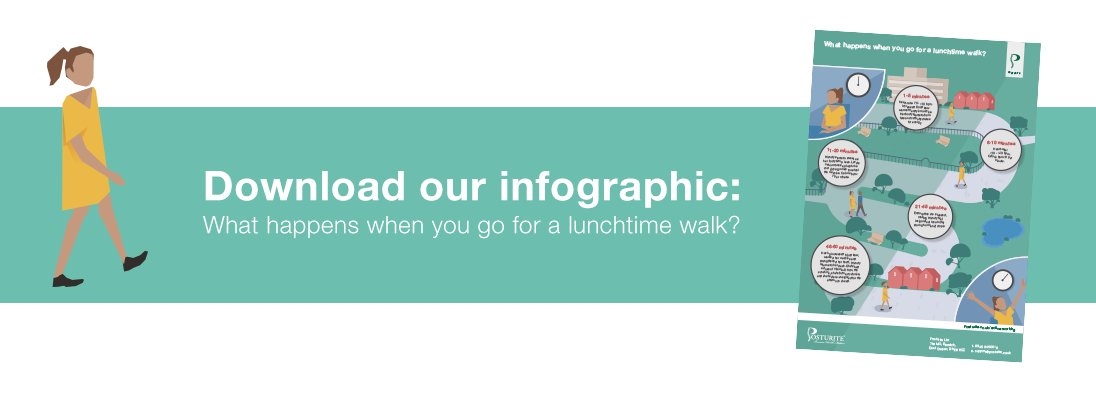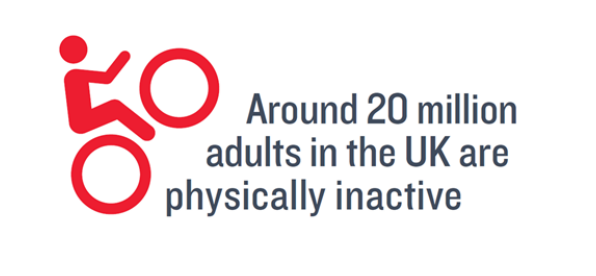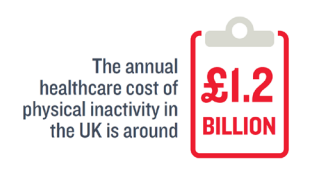"Physical inactivity is a global health crisis, responsible for an estimated five million deaths worldwide."

This is the line that opens the British Heart Foundation's recently released 'Physical Inactivity and Sedentary Behaviour Report 2017', and the message couldn't be clearer.
Something needs to be done about our sedentary lifestyles. Why are 20 million of us not meeting the government's recommended 150 minutes of moderate to intense activity a week? That doesn't even mean you have to join a fitness class, sign up to the gym, or even become a jogger.
Twenty minutes of brisk walking a day would count.
This simple daily activity - even more easily achieved when broken down into five or 10 minute chunks, could dramatically improve your health and prolong your life.  But how many of us actually know this until it's too late? According to the BHF report, as many as 60% of Brits haven't even heard about the government's physical activity recommendations.
But how many of us actually know this until it's too late? According to the BHF report, as many as 60% of Brits haven't even heard about the government's physical activity recommendations.
How does being physically inactive cause death?
 Physical inactivity causes one in sixth deaths in Britain.
Physical inactivity causes one in sixth deaths in Britain.
Why? Because regular activity strengthens your heart and muscles, and reduces your risk of so many problems, including:
- cardiovascular disease
- high blood pressure
- overweight and obesity
- some cancers.
According to the World Health Organisation, 'people who are insufficiently active have a 20% to 30% increased risk of death compared to people who are sufficiently active'.
How physical activity makes a difference

One Oxford University study noted in the BHF's report found that middle-aged women could significantly lower their risk of heart disease and stroke by exercising just two or three times a week.
Another study cited, this time by the Liverpool John Moores University, found that exercise can stimulate dormant stem cells in the heart to trigger the creation of new heart muscle cells. This means that doing regular, intensive exercise could potentially help heart attack patients mend damaged heart cells.
Why are we still so inactive when the evidence is clear?
Thanks to research funded by the BHF and other organisations, it is becoming increasingly clear just how crucial a role physical activity plays in the life of a healthy human.
Unfortunately, too many of us are oblivious to the life-saving effects of exercise and continue to sit ourselves towards an early grave.
You don't have to be overweight or obese to be at risk.
We need to spread the message that just a few simple changes to a person's daily routine could end up saving their life.
If we can get the British workforce to move more then we could save billions.
Start active working right now
Visit our active working hub for inspiration on how to start active working today. We'll show you how investing in sit-stand desks can:
- save your business money
- boost concentration of employees
- improve oxygen and bloodflow
- keep employees active and healthier
- increase productivity levels across business
- encourage people to talk face-to-face.











